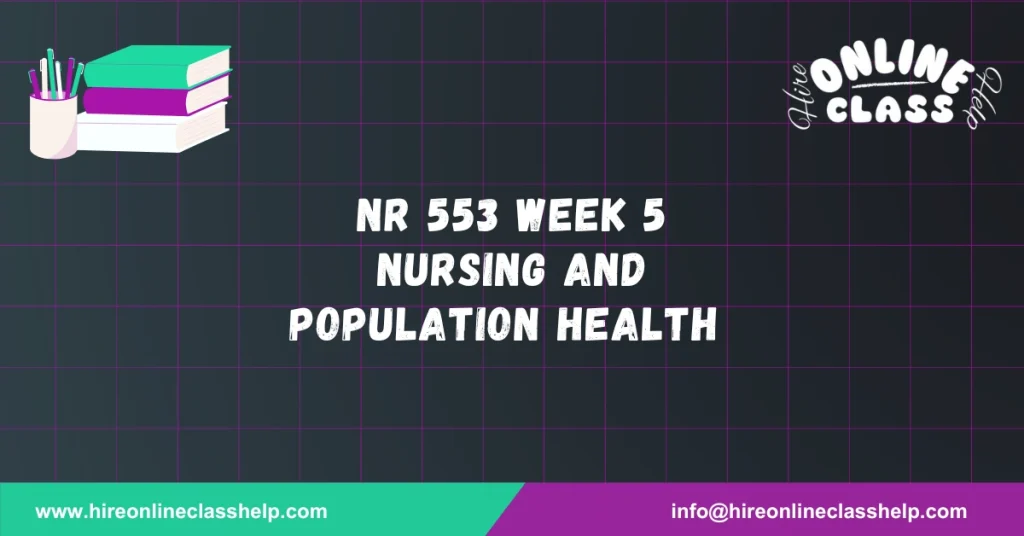






Name
Chamberlain University
NR-553: Global Health
Prof. Name
Date
Nursing extends far beyond providing direct patient care; it encompasses roles that influence the health of entire populations. According to Breda (2012), nurses are not only clinicians but also advocates, scholars, citizens, activists, and artists. This multifaceted identity enables nurses to play pivotal roles in advancing population health and participating in global health diplomacy. As the largest segment of the global healthcare workforce, nurses hold a powerful position in promoting human rights and improving community health outcomes. Through collaboration with diverse stakeholders, they can drive initiatives that foster health equity and address critical health challenges worldwide.
Govier and Rees (2013) emphasize that nurses are also instrumental in mitigating lifestyle-related health risks, particularly concerning alcohol consumption. Alcohol misuse remains a growing public health concern, contributing to numerous diseases and societal issues. Despite the social and cultural acceptance of alcohol in many settings, nurses are vital in promoting awareness about its harmful effects, educating patients, and motivating behavioral changes toward safer consumption practices.
In routine clinical practice, nurses assess drinking habits, discuss safe consumption levels, and use key moments during care to initiate meaningful conversations about lifestyle modifications. These seemingly small interventions can lead to significant public health outcomes by empowering individuals to make informed decisions and reducing the burden of alcohol-related illnesses.
| Nursing Role | Description | Impact on Population Health |
|---|---|---|
| Advocate | Promotes awareness of alcohol misuse and its adverse health effects. | Encourages healthier lifestyle choices and empowers communities. |
| Educator | Provides accurate knowledge regarding safe alcohol consumption limits. | Reduces misinformation and fosters lasting behavioral change. |
| Motivator | Supports at-risk individuals to adopt safer drinking habits. | Decreases risks of alcohol-related diseases and complications. |
| Assessor | Evaluates patient alcohol use during clinical visits. | Enables early detection and timely intervention for risky behaviors. |
| Policy Influencer | Participates in shaping public health policies related to alcohol use. | Contributes to effective prevention programs at both national and community levels. |
Answer:
Nurses are essential contributors to the development and implementation of federal strategies aimed at reducing alcohol-related health risks. Given the social complexities surrounding alcohol consumption, evidence-based policies are crucial for meaningful change. Research indicates that interventions such as raising the legal drinking age, lowering blood alcohol concentration limits for drivers, and restricting access to alcohol for underage individuals can effectively reduce alcohol-related harm (Govier & Rees, 2013).
Health policy nurses play a vital role in these initiatives by conducting evidence-based research, proposing legislative recommendations, and engaging in community-level prevention programs. Their collaboration with policymakers ensures that strategies are culturally sensitive, practical, and widely accepted. By bridging grassroots advocacy and national policy, nurses help design comprehensive approaches that integrate education, regulation, and prevention—ultimately reducing the overall burden of alcohol misuse.
Answer:
Nurses form the backbone of both disaster preparedness and response systems. As the largest group within the healthcare workforce, they are indispensable during public health emergencies. Penny’s observation about nurses’ critical role during pandemics is accurate—they provide not only frontline care but also leadership and policy guidance during crises.
Effective disaster management requires interprofessional collaboration, as no single entity can manage emergencies independently. Therefore, nurses must receive specialized training in disaster response to enhance readiness and ensure swift, coordinated action. Their roles extend beyond direct patient care to include participation in policy development, preparedness exercises, and coordinated response planning.
Through their expertise, nurses contribute to all phases of disaster management—prevention, response, and recovery. Their leadership and adaptability strengthen healthcare systems’ resilience and improve outcomes during public health emergencies.
The role of nurses in population health extends far beyond traditional bedside care. As advocates, educators, and policymakers, nurses are central to advancing health equity and addressing critical health issues such as alcohol misuse and pandemics. Their broad expertise allows them to influence both community-level interventions and national health policies. By combining advocacy, education, and leadership, nurses enhance global health diplomacy, support sustainable health outcomes, and strengthen societal resilience against emerging health threats.
Breda, K. L. (2012). What is nursing’s role in international and global health? Texto & Contexto Enfermagem, 21(3), 489–490. https://doi.org/10.1590/S0104-07072012000300001
Govier, A., & Rees, C. (2013). Reducing alcohol-related health risks: The role of the nurse. Nursing Standard, 27(50), 42–46. https://doi.org/10.7748/ns2013.08.27.50.42.e7564